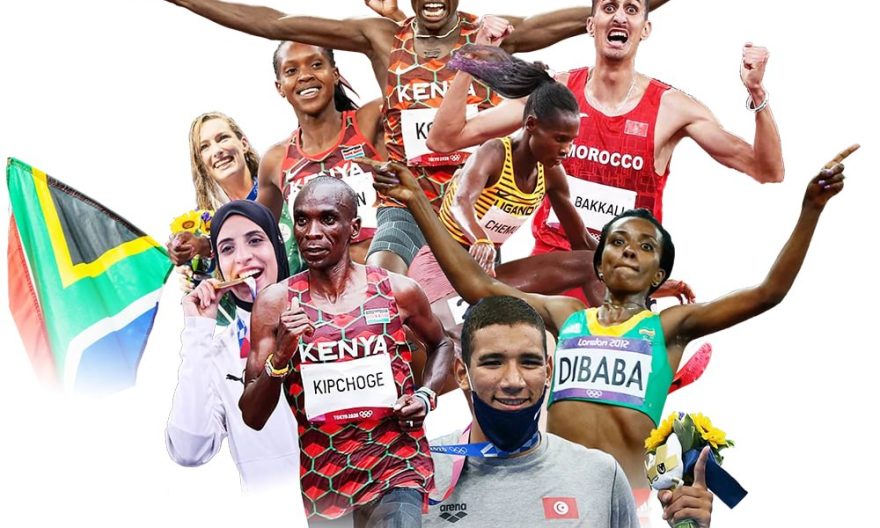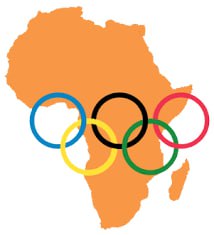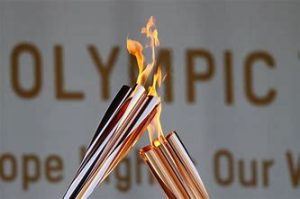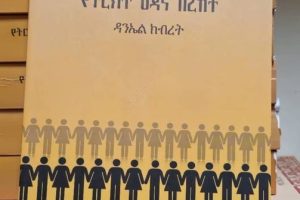
Back in 1960, upon his triumphant return from the Rome Olympics, Abebe Bikila was the subject of public adulation and many jokes that were popular at that time. The legendary Ethiopian marathoner born in a small village in the vicinity of the capital Addis Ababa, instantly became the second most popular man in Ethiopia after emperor Haile Selassie. He was the first man and African to win a gold medal in a marathon. It was a shock that reverberated across the world. How could an unknown athlete from a little-known country could win a race that was considered the most difficult in Olympics competitions?
“The favorites in 1960 included Sergei Popov of the Soviet Union, owner of the previous fastest marathon time of 2 hours 15 minutes and 17 seconds, and Abdesalem Rhadi of Morocco. So little known was Bikila before the race that the official Olympic program incorrectly listed him as “Bikila Abebe.” Before the 1960 Games, he had run only two marathons in his life—both in his native country.”
The 42 km marathon race in the Olympics is considered the most demanding and most grueling competition that has always put the resilience as well as the physical and psychological stamina of the athletes to the test. This was true back in the 1960s, when the like of Abebe Bikila achieved what was then thought to be an impossible feat. The marathon remains the ultimate test of endurance for athletes but also for their fans who have to undergo more than two hours of waiting until the first runner reaches the finish line.
This is as true now as it was more than 60 years ago although the record time has budged only a little and the competitors are generally younger than those veterans most of whom have now left the stadiums or transitioned to the other world. Those were glorious days for athletics in general and the marathon in particular when little-known and little-expected competitors emerged suddenly from nowhere and claimed the mantle of legend.


In Ethiopia, many Olympic legends have appeared and disappeared, but none are as revered as Abebe Bikila, who became a household name not only among the sporting community but also among the average Ethiopian who had nothing to do with running or sports in general. Abebe’s rise to Olympic supremacy was not only fast and unexpected but also unprecedented. He was catapulted to international fame so fast that his name and fame assumed mythical proportions. His downfall which was as sudden as his rise was largely ignored as it was shrouded in unfounded tales of mystery and intrigue.
According to an article in Encarta encyclopedia, “On a warm September evening in Rome, Italy, a slender, dark-shirted runner hastened toward the Arch of Constantine. Few of the spectators recognized him as he approached the finish line of the Olympic marathon, but most were surprised when they noticed that he was running barefoot. Two hundred yards ahead of his nearest competitor, Abebe Bikila crossed the finish line.”
Before that race, on the next-to-last night of the 1960 Olympic Games, Abebe Bikila was an obscure runner from Ethiopia, utterly anonymous to the world’s sporting press. A little over two hours later, Bikila had established himself as the fastest marathoner in history. He would go on to win, with surprising ease, the 1964 Olympic marathon in Tokyo, Japan. He would suffer a tragic auto accident that would paralyze him from the waist down, and he would die prematurely at age 41. But it was in that one race, at the Rome Olympics, that Bikila became one of the great champions in Olympic history.
The Olympic Games started in Olympia, Greece. “Although the ancient Games were staged in Olympia, Greece from 776 BC through 393 AD. it took 1503 years for the Olympics to return. The first modern Olympics were held in Athens, Greece in 1898. The man responsible for the rebirth was a Frenchman named Baron Pierre de Coubertin who presented the idea in 1894.”
Pierre de Coubertin succeeded in his effort to reestablish the Games primarily because his conception of the Games was international rather than nationalistic. Although earlier in his career he had been interested in sports as a way to improve the military preparedness of France, he eventually envisioned them as an instrument to overcome conflicts among nations.
“The history of the Games goes back around 3000 years, to the Peloponnese in ancient Greece. Sports contests organized by at Olympia took place every four years and acquired the Name Olympic Games. We do not know exactly when they started but the date of 776BCis often cited in written sources.”
Pierre de Coubertin believed that sport contributed to the harmonious and well-balanced development of the body, personality, and mind. As such, interaction between sport education and culture is encouraged by the International Olympic Committee (IOC).
“The goal of the Olympic Movement is to contribute to building a peaceful and better world by educating youth through sport practiced without discrimination of any kind and the Olympic spirit, which requires mutual understanding.”
As defined by the United Nations, “The Culture of Peace is a set of values, attitudes, modes of behavior and ways of life that reject violence and prevent conflicts by tackling their root causes to solve problems through dialogue and negotiation by individuals.” This is however easier said than done as the ways of achieving or implementing a culture of peace have already proved extremely difficult unless the psychological, emotional, and sentimental conditions are conducive to the emergence of a genuine movement for a global culture of peace.
According to studies conducted in this area, “ A Culture of Peace includes being in peace with oneself, others, and the natural world. The primary tool to promote a Culture of Peace is Peace Education, which must be taught in families, all levels of education, workplaces, and disseminated through the media, and encouraged at all levels of society.”
So far, there have been 30 Summer Olympic Games held in 21 cities and 24 Winter Olympic Games held in 21 cities. “The Olympic Games have become a significant global event, fostering international cooperation and cultural exchange. At the same time, hosting the Olympic Games can also bring significant economic benefits and challenges to the host city, affecting infrastructure, tourism, and local communities.”
There has hardly been any time when the Olympic games were taking place in an atmosphere of total peace. For one reason or another, the Olympics often take place in contexts of wars, conflicts, and misunderstandings among nations. These conflicts are of course contrary to the spirit of the Olympic Games. “Olympic Games provide the framework for peaceful athletic competition and unite people all over the world. And the torch relay is a powerful symbol of peace, an expression of peaceful cooperation between human beings and between countries.”
Africa is not a continent that is struggling to develop and not a continent that pursues ambitious or hegemonic plans in other parts of the world. Africa as a developing continent is better committed to the prevalence of peace in the world because conflict in one part of the world would sooner or less impact its hopes and dreams. Africa has never been a source of global or regional conflict while most continents have been engaged in hegemonic conflicts that claimed millions of lives.
For this and other reasons, Africa has a better chance of generating ideas that benefit world peace both for its development and useful for regional and global peace. Global peace is unimaginable without Africa’s active participation and contribution while Africa’s peace cannot be guaranteed without international peace.
Africans should also use the opportunities Olympic Games created to promote the ideals of peace and development in the world. Africa’s quest for peace and development cannot be realized by outside forces but by Africans themselves. The once in four years Olympic Games should be used to promote this objective because it is also the objective of the developed countries many of whom are now engaged in unnecessary conflicts that undermine the ideals of the Games.
“The Olympics peace is symbolized by the dove of peace with the traditional Olympic flame in the background. In a world that is plagued by wars and animosity, the peace dove symbol represents one of the IOC’s ideals to build a peaceful and better world through sport and the Olympic ideal.”
BY MULUGETA GUDETA
THE ETHIOPIAN HERALD FRIDAY 16 AUGUST 2024





